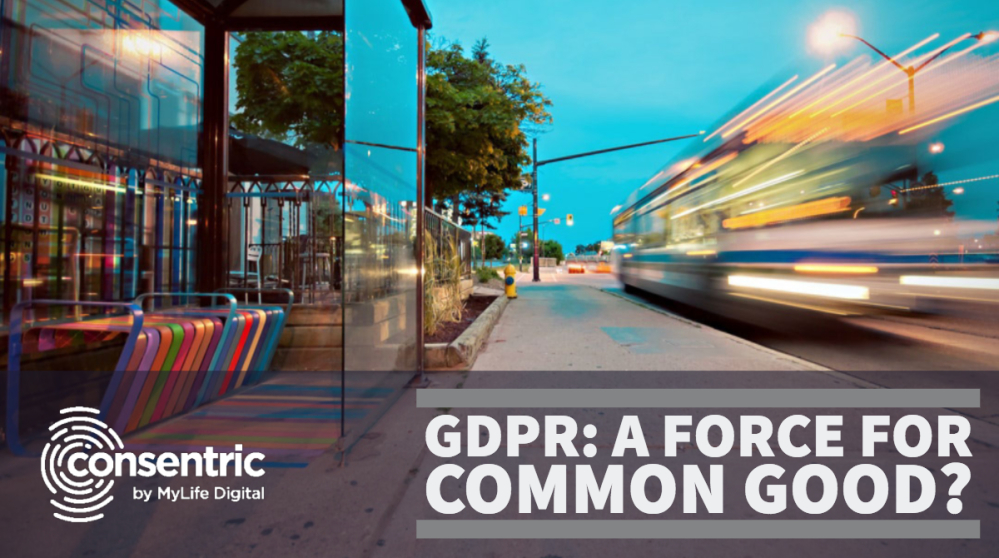Personal Data Could Be a Force for Common Good if Consumers Share More
23 Jul 2018

In the wake of GDPR legislation, finding a way to encourage people to share their personal data more widely is crucial to enabling the service breakthroughs everyone wants. But there’s a level of trust that needs to be built first, says J Cromack of Consentric
Much of the potential of smart city initiatives relies on unprecedented sharing of data between different parties – from council departments and transport/infrastructure managers to the app companies coordinating innovative new services.
Some of this data will come from the people passing through and engaging with these cities – and not all of it will be aggregated, anonmysed population data. In Southhampton, for instance, local residents can now carry a single City Council ‘smart’ card which can be used interchangeably as a bus pass, donor card, library card, leisure card, and toll card for crossing the Itchen Bridge. Something that would not be possible without the council and affiliated service providers being able to share citizens’ data.
Yet, in the wake of Facebook/Cambridge Analytica, and as the new EU General Data Protection Regulation (GDPR) comes in, personal data sharing has become a thorny subject. And plans for smarter cities, improved public health and other digital service innovations could be at risk if people stop consenting to relevant organisations being in on the secret. So it’s important we don’t reach that point.
That means giving individuals new, attractive reasons to share their personal data in the wake of GDPR – based on what they stand to get in return. It also means rebuilding trust; that people’s personal data will only be used with an individual’s express permission for the intended purpose, and that new permissions will be sought as needed.
Getting out what you put in
In the public sector a whole range of advances, from personalised, pre-emptive health advice to smarter transport services, depend on citizens allowing different organisations to understand more about who they are and what they are doing. As well as improving their own experience, the shared information could be used for the greater good – such as a deeper understanding of diabetes or heart-attack triggers, or how to make streets safer.
Click here to Discover moreâ

Please login to comment.
Comments